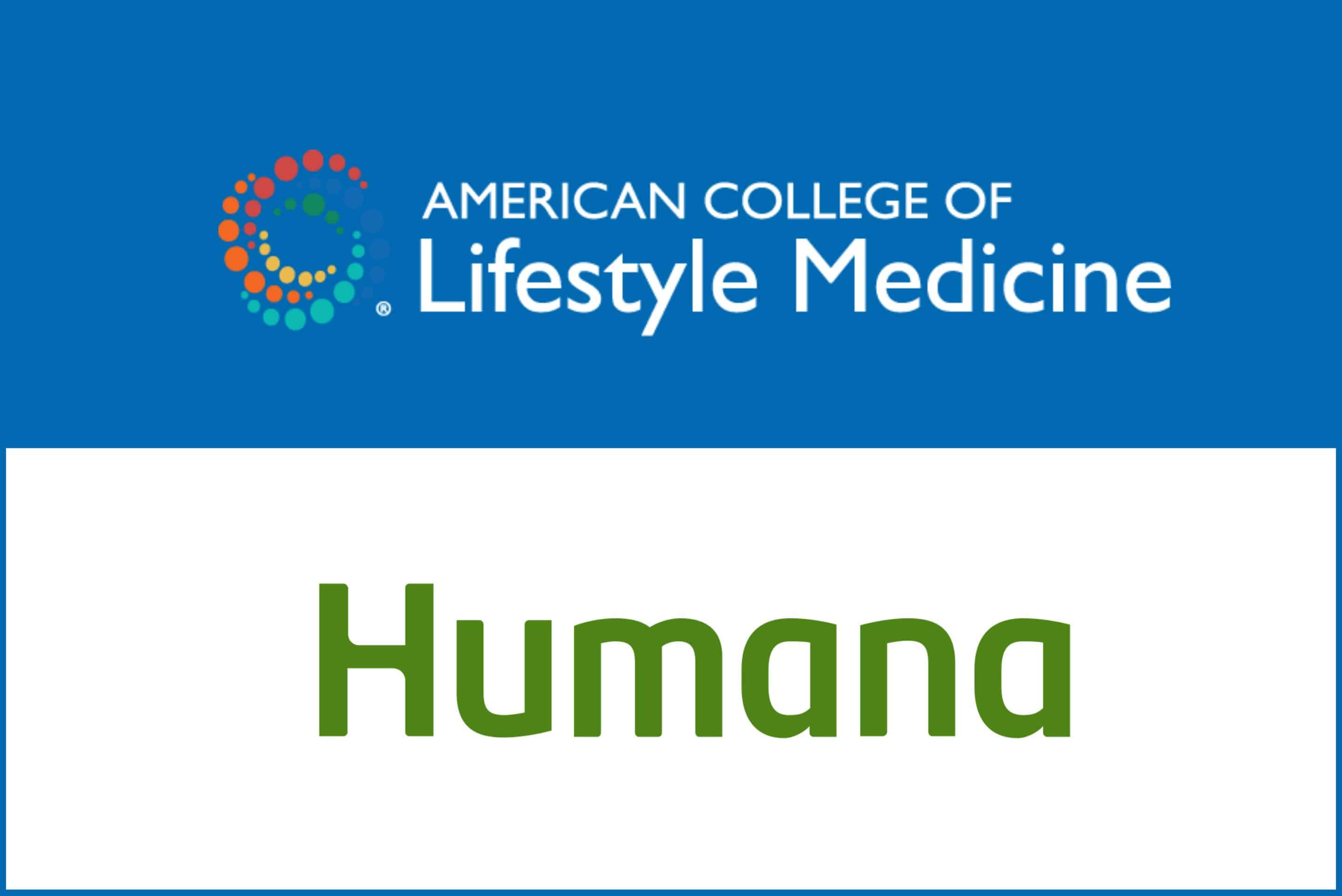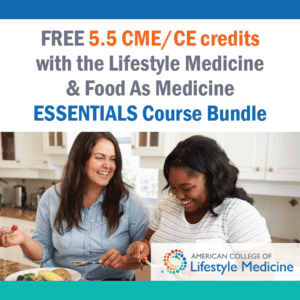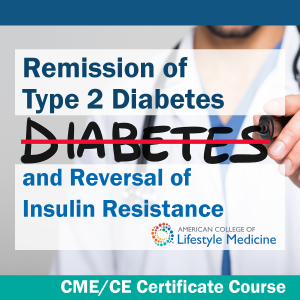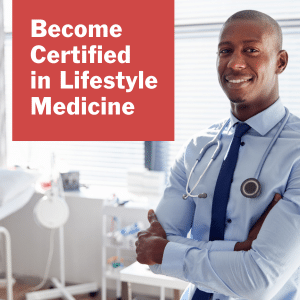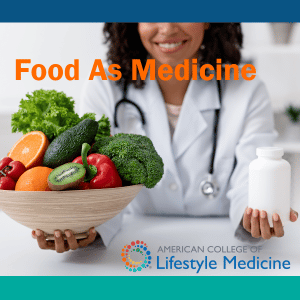Study shows effectiveness of ACLM introductory lifestyle and food as medicine CME/CE course
By Alex Branch, ACLM Director of Communications
Individuals who completed the complimentary “Lifestyle Medicine and Food as Medicine Essentials” course reported significant improvements in knowledge and confidence.

American College of Lifestyle Medicine (ACLM) member Cliff Morris, MD, DipABLM, is experienced at prescribing lifestyle medicine including food as medicine interventions in his practice Morris Cardiovascular and Risk Reduction Institute in Chester, Virginia.
Certified in lifestyle medicine since 2021, Dr. Morris and his team facilitate group medical appointments, prescribe dietary and exercise recommendations and arrange for a farmer’s market to visit their office so patients can access nutritious food. Yet he was surprised by how much he learned completing ACLM’s complimentary 5.5-hour CME/CE “Lifestyle Medicine and Food as Medicine Essentials” course.
“I thought I knew a lot about lifestyle medicine and food as medicine, but I learned so much more by taking the Essentials course,” Dr. Morris said. “It has made our practice stronger, and I share what I have learned with everyone I can.”
Dr. Morris is far from the only health professional to have benefited from the commitment by ACLM to educate 200,000 clinicians in lifestyle and food as medicine in support of the 2022 White House Conference on Hunger, Nutrition and Health. Already 41,502 individuals have registered for the online course that provides a foundational, evidence-based introduction to the field of lifestyle medicine focused on nutrition education for prevention and treatment of chronic disease.
Participants in the course are invited to enroll in a research study, aiming to assess the course’s effectiveness. The study involves completion of a survey at the start and the end of the course assessing knowledge, confidence, attitudes and practice of lifestyle medicine. Almost 7,300 individuals representing a range of medical fields have completed both surveys.
Participants self-reported significant improvements in their knowledge and confidence around lifestyle medicine. They also reported that they significantly increased how often they practiced lifestyle medicine and the number of patients with whom they practiced lifestyle medicine.
“The findings are exciting because they indicate the Lifestyle Medicine and Food as Medicine Essentials course is having exactly the impact on physicians and other health professionals for which it was designed,” said Micaela Karlsen, PhD, MSPH, ACLM senior director of research. “Through this brief, scalable education program, more than 40,000 clinicians have committed to gaining the foundational knowledge to incorporate lifestyle and food as medicine into their practices and, hopefully, continue their education in the field.”
One research study found that practicing more lifestyle medicine was associated with a 43% decrease in the chances of experiencing burnout. Additionally, 90% of respondents reported that lifestyle medicine positively impacted their professional satisfaction.
About the course
At the time of the White House conference, ACLM committed $22 million in educational coursework to educate 100,000 medical professionals in lifestyle and food as medicine through the Essentials course. The commitment included an additional $2.1 million in matching funds to help train and certify in lifestyle medicine one primary care provider at each of the 1,400 US Federally Qualified Health Centers. ACLM later doubled its Essentials commitment to $44 million to educate 200,000 medical professionals by September 2025.
The Essentials course, valued at $220, consists of three modules:
- Intro to Lifestyle Medicine, a one-hour course featuring ACLM President Cate Collings, MD, FACC, DipABLM
- Food as Medicine: Nutrition for Prevention and Longevity, a three-hour course presented by Kayli Anderson, MS, RDN, ACSM-EP, DipACLM, FACLM
- Food as Medicine: Nutrition for Treatment and Risk Reduction, a 90-minute course presented by New York Health and Hospitals Executive Director of Nutrition and Lifestyle Medicine Michelle McMacken, MD, DipABLM
Why food as medicine?
Genetics may predispose individuals to some diseases, but lifestyle and environment play significant roles in disease occurrence. About 80% of heart disease, stroke and type 2 diabetes and 40% of cancer could be prevented, primarily with improvements to diet and lifestyle, according to the World Health Organization.
However, clinician education in nutrition is sorely lacking. In 1985 the National Academy of Sciences recommended 25 hours minimum of nutrition education, but only 29 percent of medical schools in the U.S. report meeting that minimum and 36 percent provide less than half of that. A recent survey found that while 94% of internal medicine resident doctors believed nutrition counseling to be essential, only 14% felt adequately trained.
Increased job satisfaction, less burnout
The Essentials course is an opportunity for clinicians suffering from job dissatisfaction or burnout to explore whether lifestyle medicine could help reignite their passion for medicine. One research study found that practicing more lifestyle medicine was associated with a 43% decrease in the chances of experiencing burnout. Additionally, 90% of respondents reported that lifestyle medicine positively impacted their professional satisfaction.
Reasons given for the increased job satisfaction included feelings of accomplishment at seeing patients improve, increased patient satisfaction due to better outcomes and enjoyment of teaching and coaching, leading to more personal clinician-patient relationships.
What others say about the course
Cara Christ, MD, MS, chief medical officer for Blue Cross Blue Shield of Arizona, said she recently took the course to see how it supports clinicians to help patients modify lifestyle behaviors to prevent, treat, and even reverse the progression of chronic disease.
“I highly recommend taking the Essentials introductory course,” Dr. Christ said. “It’s a fantastic CME course and the five-and-a-half hours go by really quickly. What I loved are the easy-to-understand tips you can start sharing with patients right away.”
Shannon Carello, LPN, of Edmonton, Alberta, called the course valuable because she helps treat many patients with type 2 diabetes and overweight and obesity.
“I find most (patients) tend to rely on a pill to fix their issues,” she said. “I am more interested in helping them make and sustain lifestyle changes to promote overall better health outcomes. The (Essentials course) will help make this possible.”
Craig Erickson, RN, BSN, CPN, of Cleveland, Ohio, said he looked forward to sharing what he learned while completing the course with his patients but that’s not the only people who will benefit.
“This course acted as an inspiration to make changes in my own life and the life of my family,” he said. “The content is not only something I can use with my patients.”
Learn more about the complimentary Essentials course, share with a colleague, and register today.


